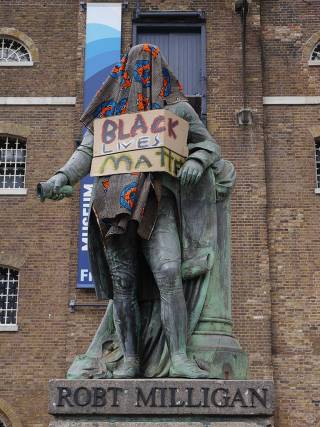The project will address issues of recognition and reparation in philanthropy by developing a ‘toolkit’ of principles that will allow institutions to address the contested periods of their histories.
As philanthropy enters a new age of scrutiny, there is an ever-growing focus on the source of funds and on how they were generated, often many generations before. Critics have begun to question whether recognition practices celebrate those whose deeds and actions, though accepted at the time, now sit at odds with contemporary values. Many have called for a rethinking of recognition practices whilst others have argued reparative actions have greater value for affected communities. To future-proof their pivotal role in addressing social issues philanthropic organisations must acknowledge and address the contested periods of their histories and how they intersect with their current programmes.
As philanthropy enters a new age of scrutiny, there is an ever-growing focus on the source of funds and on how they were generated, often many generations before. Critics have begun to question whether recognition practices celebrate those whose deeds and actions, though accepted at the time, now sit at odds with contemporary values. Many have called for a rethinking of recognition practices whilst others have argued reparative actions have greater value for affected communities. To future-proof their pivotal role in addressing social issues philanthropic organisations must acknowledge and address the contested periods of their histories and how they intersect with their current programmes.
At present there is no shared understanding about how to approach and address these topics. Supported by funding from The Rockefeller Foundation, the objective of ‘Recognition and Reparation in Philanthropy’ is to provide a rigorous academic framework for discussions and to increase the confidence of those required to engage in such debates. We believe this will enable foundations to act proactively and constructively and provide the basis for wider discussions concerning how other charitable and educational institutions can respond to these questions.
Our project brings together a small group of representatives from high-profile global philanthropic foundations with academics in the Department of History and elsewhere at UCL for a series of roundtable discussions at The Bellagio Center, aiming to provide participants with the tools they need to navigate these challenging conversations. These will be used to shape a set of guiding principles and processes, or a ‘toolkit’, which will empower participants to continue these discussions within their organisations and with key external stakeholders. This will offer not merely, or even, a series of prescriptive and rigid rules but rather will elucidate the underlying principles and procedures that organisations should follow in addressing these issues, enabling a flexible response to future questions. These resources will be scalable and ultimately capable of wider application, to encourage institutions and organisations beyond the philanthropic sector to make use of the practices and principles pioneered by this project to engage with these matters themselves.
If you would like to know more, please email aaron.graham@ucl.ac.uk.
 Close
Close


